Pulp Fiction (1994)
- nguyentruong
- November 4, 2024
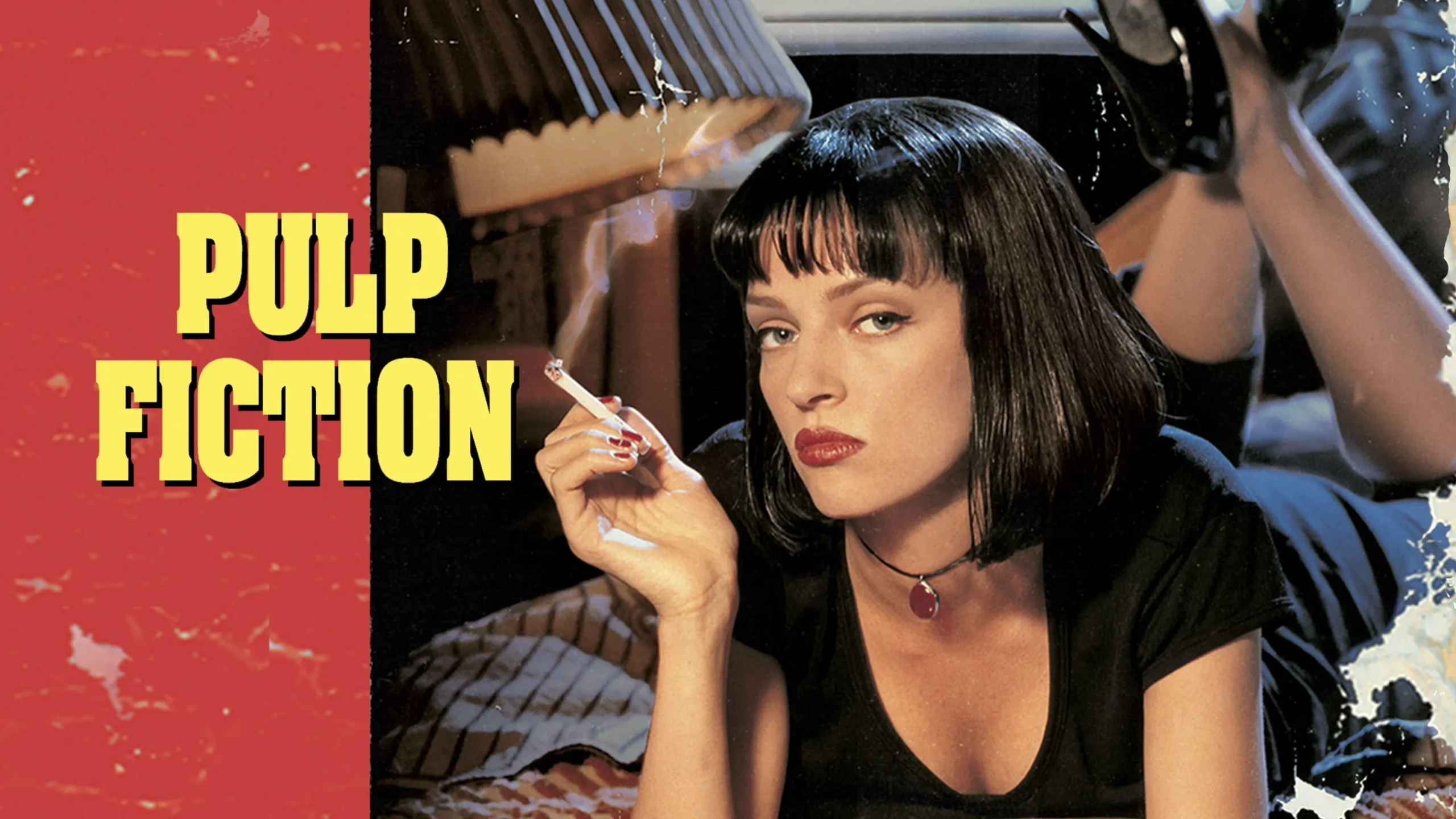
Pulp Fiction (1994), directed by Quentin Tarantino, is a genre-defining film that intertwines dark humor, crime, and a unique narrative style to create a story that remains one of cinema’s most celebrated and analyzed pieces. Known for its non-linear storyline, razor-sharp dialogue, and unforgettable characters, the film weaves together multiple interconnected stories involving gangsters, hitmen, and ordinary people caught up in extraordinary situations. Starring John Travolta, Samuel L. Jackson, Uma Thurman, Bruce Willis, and Harvey Keitel, Pulp Fiction explores themes of fate, redemption, and violence in a manner that defies traditional storytelling.
The film’s episodic structure breaks down into three primary stories, each featuring distinctive characters and plotlines that overlap, revealing connections and complexities as they unfold. In the first storyline, hitmen Vincent Vega (John Travolta) and Jules Winnfield (Samuel L. Jackson) work for crime boss Marsellus Wallace (Ving Rhames) and are sent to retrieve a mysterious briefcase. This scene introduces viewers to the iconic duo’s banter, blending humor with philosophy as Jules muses on everything from “divine intervention” to the nature of redemption. Their chemistry and quotable exchanges are a cornerstone of the film’s appeal.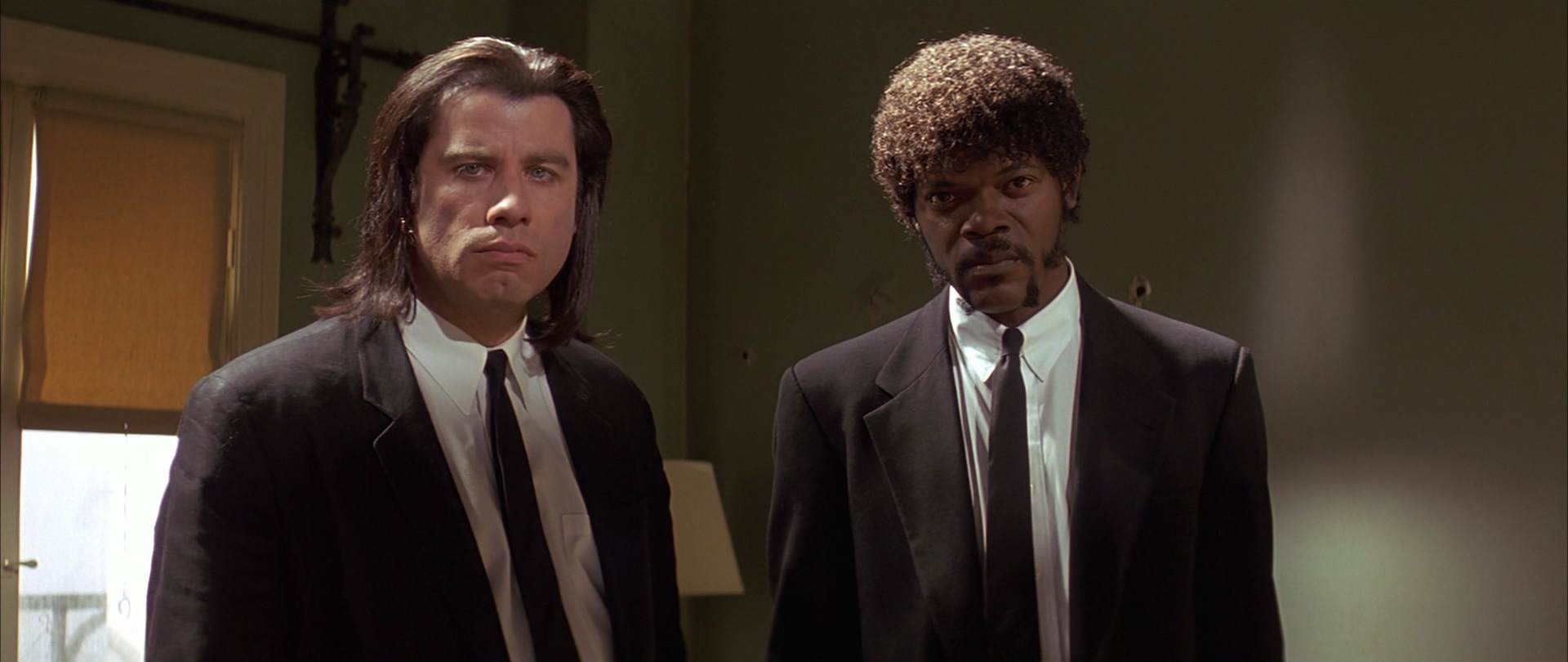
The second major storyline centers around Vincent’s night out with Mia Wallace (Uma Thurman), Marsellus’s wife. Vincent, instructed to keep Mia company while Marsellus is away, finds himself in an awkward but enticing situation. The sequence in which they visit Jack Rabbit Slim’s, a ’50s-themed diner, is one of the film’s most memorable, featuring the now-famous dance scene where Travolta and Thurman twist to Chuck Berry’s “You Never Can Tell.” This part of the film is laced with suspense as Vincent grapples with the tension between attraction and loyalty, culminating in a harrowing overdose scene that underscores the unpredictable nature of Tarantino’s narrative.
The third storyline involves a boxer named Butch Coolidge (Bruce Willis), who double-crosses Marsellus after agreeing to throw a fight. Butch’s escape and the aftermath of his decision lead to one of the film’s darkest and most intense sequences, where he and Marsellus are captured by two sadistic men. Butch’s choice to return and save Marsellus, despite their enmity, is a crucial turning point in the film that explores themes of honor, survival, and unexpected redemption. Willis’s portrayal of Butch gives the character both grit and vulnerability, adding to the complex web of motivations and moral decisions that define Pulp Fiction.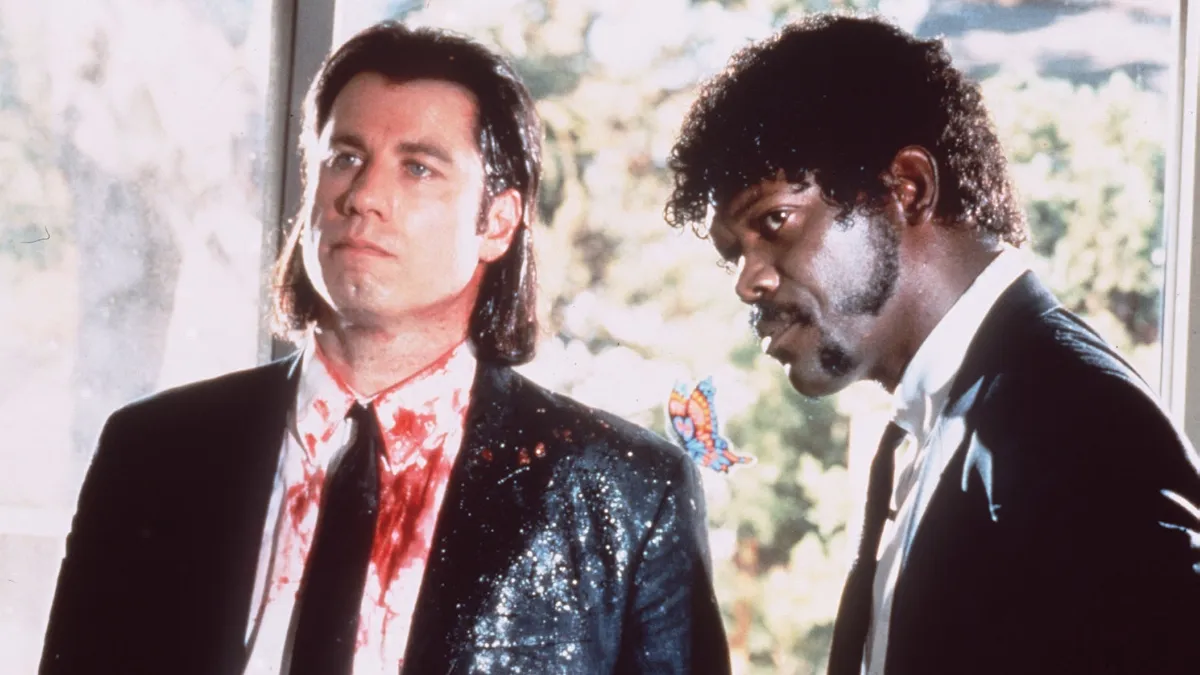
An additional layer of storytelling emerges through The Bonnie Situation, a sequence that returns to Vincent and Jules after their retrieval mission goes awry. After accidentally shooting an accomplice in the car, they’re forced to clean up the aftermath under the guidance of Winston Wolfe (Harvey Keitel), a “fixer” who commands respect and efficiency. This segment blends dark comedy with suspense, turning a gruesome situation into an absurd yet gripping narrative, as the two men navigate their predicament with humor and unexpected camaraderie.
Each storyline is tied together not only by the characters but also by recurring symbols and motifs, such as the mysterious glowing briefcase that remains a subject of endless speculation. The briefcase’s contents are never revealed, inviting viewers to focus less on the “what” and more on the “why” as it connects characters and choices throughout the narrative. This ambiguity is a hallmark of Tarantino’s style, encouraging viewers to interpret meaning through subtext rather than direct answers.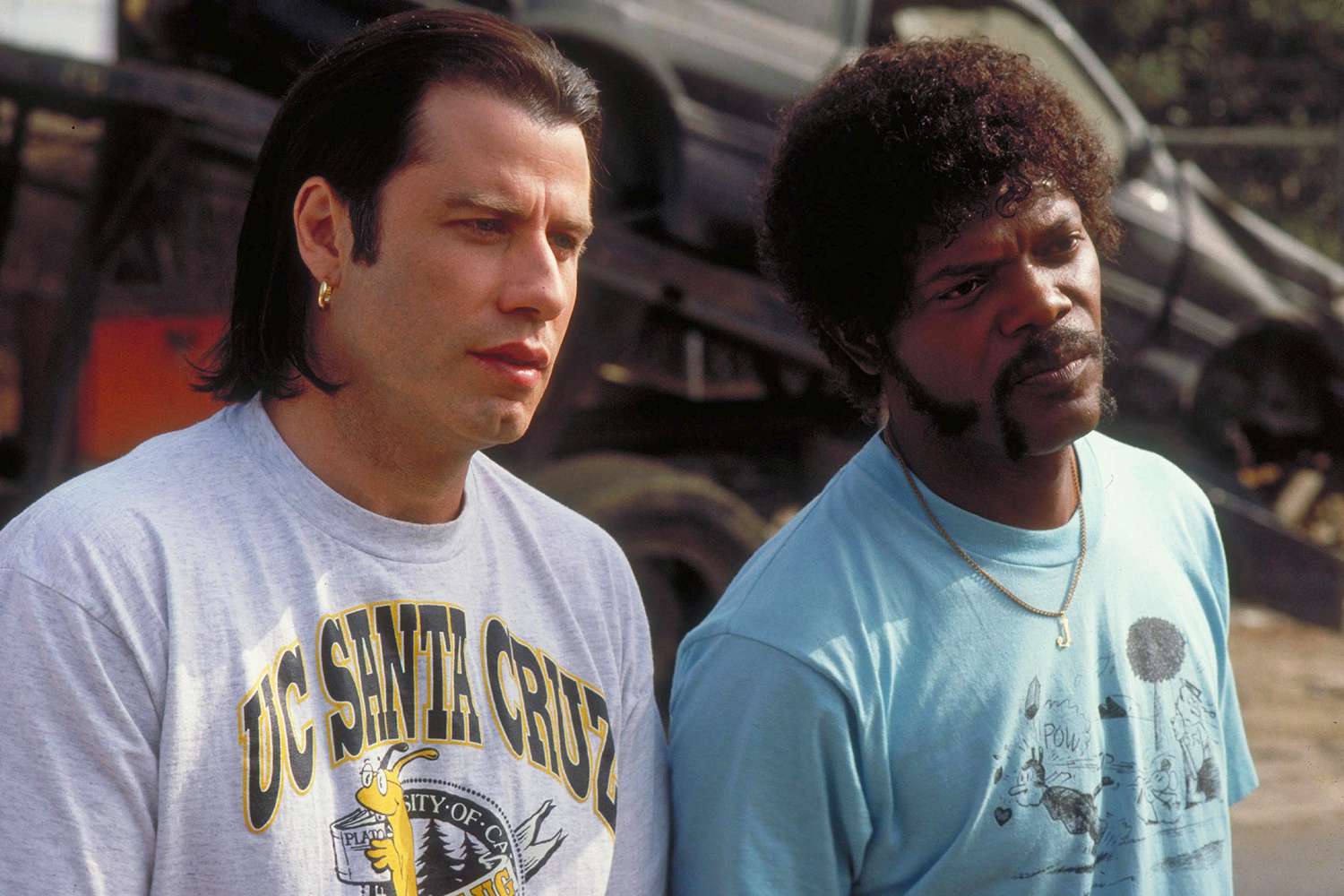
The film’s dialogue, crafted with meticulous attention to rhythm and wit, is another defining element of Pulp Fiction. Characters frequently engage in seemingly trivial conversations that reveal their personalities and worldviews, blurring the line between the mundane and the profound. Jules’s Biblical monologue, for example, serves as both a threat and a reflection of his own philosophical struggle, encapsulating his journey from a ruthless killer to a man seeking redemption. This interplay between dialogue and character development enriches the film’s storytelling, giving it depth beyond its crime-drama exterior.
In addition to its groundbreaking narrative style, Pulp Fiction boasts a soundtrack that became iconic in its own right, with songs like “Misirlou,” “Son of a Preacher Man,” and “Girl, You’ll Be a Woman Soon” accentuating the film’s mood and adding to its cultural resonance. Each song complements the scenes they accompany, creating a synergy between sound and visuals that is central to the film’s impact.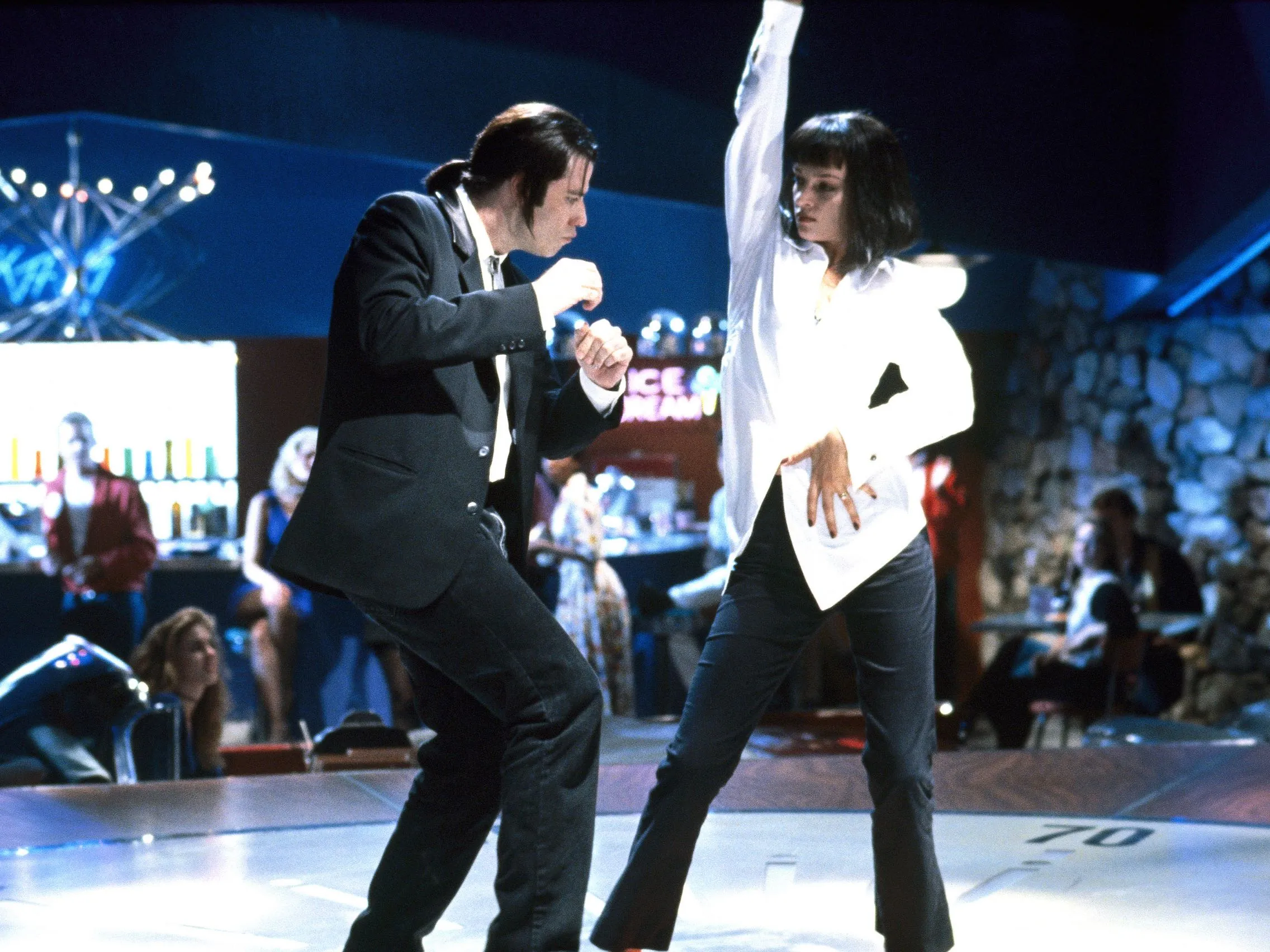
Pulp Fiction’s release marked a turning point in independent cinema, solidifying Quentin Tarantino’s reputation as a visionary director. Its success inspired a wave of films that sought to replicate its blend of pop culture references, non-linear structure, and stylized violence. The film received multiple Academy Award nominations, including Best Picture and Best Director, and won the Oscar for Best Original Screenplay, recognizing Tarantino’s and Roger Avary’s unique script.
Pulp Fiction endures as a cinematic milestone for its ability to transcend genre conventions, creating a world where morality is ambiguous, and characters are defined by their choices in the face of chaos. With its intricate storytelling, memorable performances, and cultural impact, Pulp Fiction remains a study in how narrative experimentation can elevate a film, transforming it from a crime story into a work of art that continues to captivate audiences and critics alike.











